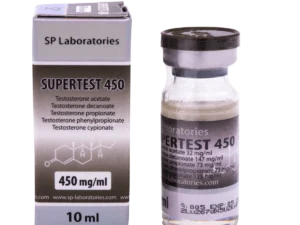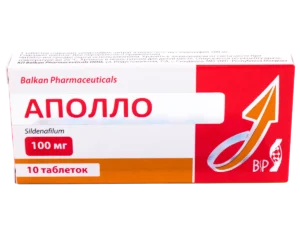Steroids in Medical Treatments: An Introduction
Steroids, also known as corticosteroids or glucocorticoids, have long been a topic of interest and controversy in the medical field. These synthetic hormones, derived from the natural hormone cortisol, play a crucial role in the regulation of various physiological processes in the human body. While commonly associated with their misuse in sports and bodybuilding, steroids have proven to be invaluable in medical treatments for a wide range of conditions.
The primary function of steroids in medical treatments is their potent anti-inflammatory and immunosuppressive properties. These properties make them highly effective in managing and alleviating symptoms of numerous chronic inflammatory and autoimmune diseases. Conditions such as rheumatoid arthritis, asthma, multiple sclerosis, and inflammatory bowel disease have shown remarkable improvement with the use of steroids.
Furthermore, steroids have proven to be indispensable in the management of certain endocrine disorders. For instance, individuals with adrenal insufficiency, a condition characterized by the insufficient production of cortisol, rely on steroid medications to supplement their hormone levels. Additionally, patients with severe allergic reactions or asthma attacks often require the immediate administration of steroids to reduce inflammation and restore normal breathing.
In the realm of organ transplantation, steroids play a crucial role in preventing organ rejection. These medications are an integral part of immunosuppressive regimens, which aim to suppress the immune system’s response to the transplanted organ. By dampening the immune response, steroids help to minimize the risk of rejection and increase the success rates of organ transplantation procedures.
While steroids offer numerous benefits in medical treatments, it is important to acknowledge their potential side effects and risks. Prolonged or excessive use of steroids can lead to adverse effects such as weight gain, osteoporosis, mood swings, and increased susceptibility to infections. Therefore, careful monitoring and appropriate dosage adjustments are essential to mitigate these risks and ensure the safe and effective use of steroids in medical treatments.
In conclusion, steroids have revolutionized medical treatments by providing effective solutions for various inflammatory, autoimmune, and endocrine disorders. Their anti-inflammatory and immunosuppressive properties have proven to be invaluable in managing chronic conditions and preventing organ rejection in transplantation. However, it is crucial for healthcare professionals to balance the benefits and risks of steroid use and closely monitor patients to ensure optimal outcomes. By harnessing the potential of steroids in a responsible and informed manner, medical practitioners can continue to improve the quality of life for countless patients worldwide.
Steroids in Medical Treatments: Exploring their Diverse Applications
Managing Inflammatory and Autoimmune Disorders
Steroids have proven to be highly effective in managing a wide range of chronic inflammatory and autoimmune disorders. Conditions such as rheumatoid arthritis, a chronic inflammatory disease affecting the joints, can cause significant pain and disability. Steroids, when used in combination with other medications, can help reduce joint inflammation, alleviate pain, and improve overall joint function.
Similarly, asthma, a chronic respiratory condition characterized by airway inflammation and constriction, can be effectively managed with steroid treatments. Inhaled corticosteroids are commonly prescribed to control and prevent asthma symptoms, reducing airway inflammation and improving lung function. This allows individuals with asthma to lead more active and symptom-free lives.
Steroids also play a crucial role in the treatment of multiple sclerosis (MS), an autoimmune disease that affects the central nervous system. By suppressing the immune response, steroids can help reduce the frequency and severity of MS relapses, leading to improved quality of life for patients.
Endocrine Disorder Management
In addition to their anti-inflammatory properties, steroids are vital in managing various endocrine disorders. Adrenal insufficiency, a condition characterized by insufficient cortisol production, requires lifelong steroid replacement therapy. Without adequate cortisol levels, individuals with adrenal insufficiency may experience fatigue, weight loss, and even life-threatening adrenal crises. Steroid medications help to restore cortisol levels, enabling individuals to lead normal lives.
Furthermore, steroids are commonly used in the management of severe allergic reactions and asthma attacks. When administered promptly, steroids can rapidly reduce inflammation and alleviate symptoms, preventing potentially life-threatening complications.
Preventing Organ Rejection
One of the most critical applications of steroids in medical treatments is in preventing organ rejection after transplantation. Organ transplantation is a life-saving procedure for individuals with end-stage organ failure. However, the immune system recognizes the transplanted organ as foreign and mounts an immune response to reject it.
To prevent organ rejection, patients are typically prescribed immunosuppressive regimens that include steroids. These medications suppress the immune system’s response, reducing the risk of rejection and increasing the success rates of organ transplantation. Steroids are often used in combination with other immunosuppressive drugs, such as calcineurin inhibitors or antimetabolites, to achieve optimal outcomes.
Conclusions
Steroids have revolutionized medical treatments by providing effective solutions for a wide range of conditions. From managing chronic inflammatory and autoimmune disorders to preventing organ rejection in transplantation, steroids have proven to be invaluable tools in the hands of healthcare professionals.
However, it is crucial to recognize and manage the potential side effects and risks associated with steroid use. Regular monitoring, appropriate dosage adjustments, and patient education are essential to minimize adverse effects and ensure the safe and effective use of steroids in medical treatments.
By harnessing the potential of steroids responsibly and in conjunction with other treatment modalities, healthcare professionals can continue to improve patient outcomes and enhance the quality of life for individuals worldwide.
Actionable Recommendations for Steroids in Medical Treatments
1. Individualized Treatment Plans
Each patient’s medical condition and response to treatment can vary significantly. It is crucial for healthcare professionals to develop individualized treatment plans when prescribing steroids. Factors such as the severity of the condition, the patient’s age, overall health, and potential risk factors should be considered. Regular monitoring and adjustments to the dosage and duration of steroid therapy can help optimize outcomes while minimizing side effects.
2. Education and Patient Empowerment
Patients prescribed steroid medications should receive comprehensive education about their treatment. This includes information about the purpose of the medication, potential side effects, and the importance of adhering to the prescribed dosage and schedule. Empowering patients with knowledge about their condition and treatment can help them make informed decisions, recognize potential complications, and seek timely medical assistance when needed.
3. Close Monitoring and Follow-up
Regular monitoring of patients receiving steroid treatments is essential to ensure their safety and efficacy. Healthcare professionals should closely monitor patients’ response to treatment, assess for any adverse effects, and adjust the treatment plan as necessary. This may involve regular check-ups, laboratory tests, and imaging studies to evaluate the patient’s progress and make informed decisions about continuing or modifying the treatment regimen.
4. Multidisciplinary Approach
Steroid treatments often require a multidisciplinary approach, involving collaboration between various healthcare professionals. In complex cases, involving specialists such as rheumatologists, endocrinologists, pulmonologists, and transplant surgeons can provide comprehensive care and optimize treatment outcomes. This collaborative approach ensures that patients receive the best possible care tailored to their specific condition and needs.
5. Emphasize Lifestyle Modifications
In addition to steroid treatments, healthcare professionals should emphasize the importance of lifestyle modifications to complement medical interventions. Encouraging patients to adopt a healthy lifestyle, including regular exercise, a balanced diet, stress reduction techniques, and smoking cessation, can help manage their condition more effectively. These lifestyle modifications can potentially reduce the reliance on steroid medications or lower the required dosage, minimizing the risk of long-term side effects.
6. Research and Development
Continued research and development in the field of steroid therapy are essential to enhance treatment outcomes and minimize side effects. Ongoing studies can help identify more targeted and specific steroid formulations, reducing the risk of adverse effects. Additionally, research can explore alternative treatment options that may reduce the reliance on steroids or provide more effective and safer alternatives for patients with specific conditions.
By implementing these actionable recommendations, healthcare professionals can optimize the use of steroids in medical treatments, ensuring the best possible outcomes for patients while minimizing the associated risks.





